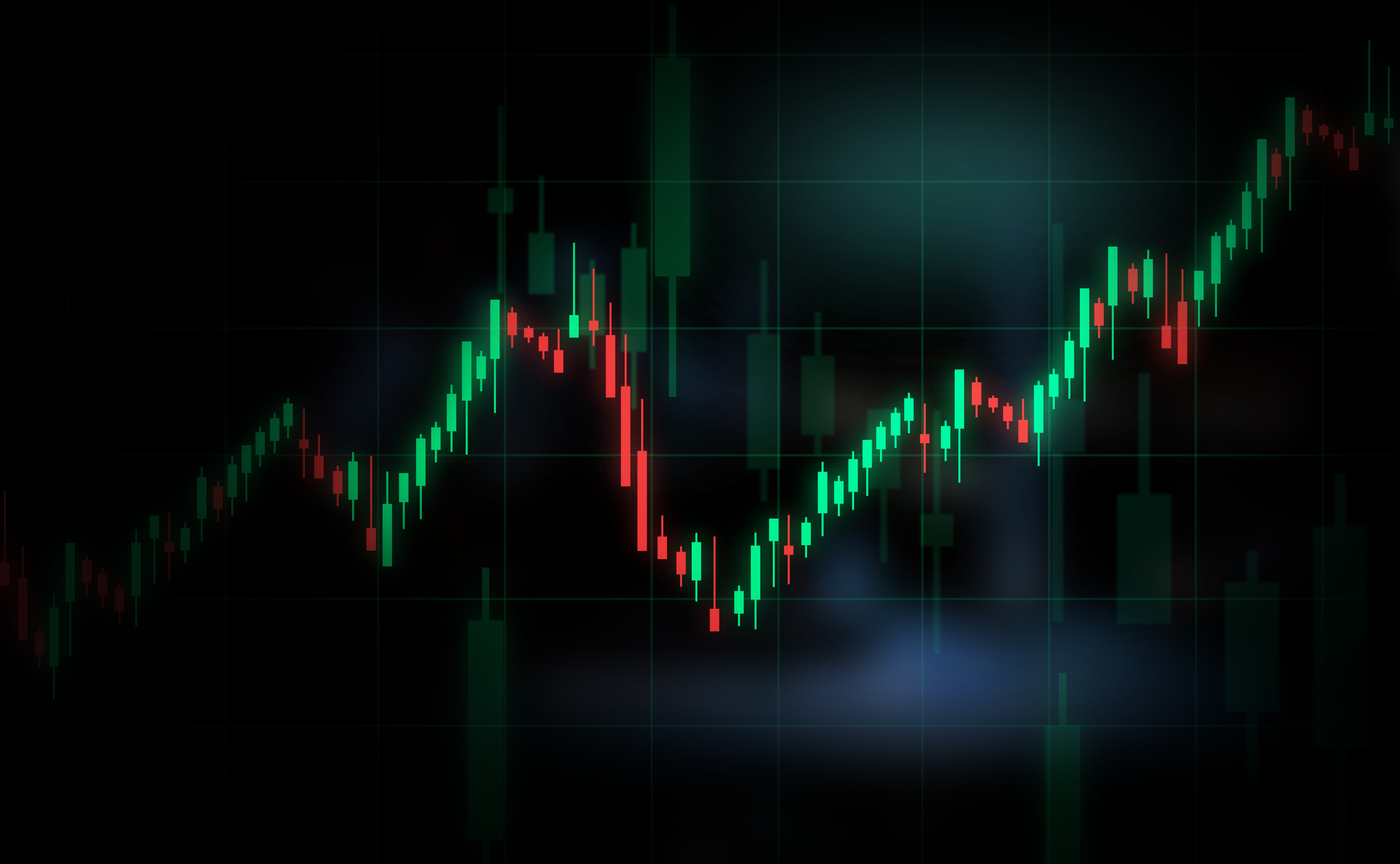Are Tech Stocks in a Bubble? Nah.
That doesn't mean a little air won’t come out of Facebook and friends now and then.


Profit and prosper with the best of Kiplinger's advice on investing, taxes, retirement, personal finance and much more. Delivered daily. Enter your email in the box and click Sign Me Up.
You are now subscribed
Your newsletter sign-up was successful
Want to add more newsletters?

Delivered daily
Kiplinger Today
Profit and prosper with the best of Kiplinger's advice on investing, taxes, retirement, personal finance and much more delivered daily. Smart money moves start here.

Sent five days a week
Kiplinger A Step Ahead
Get practical help to make better financial decisions in your everyday life, from spending to savings on top deals.

Delivered daily
Kiplinger Closing Bell
Get today's biggest financial and investing headlines delivered to your inbox every day the U.S. stock market is open.

Sent twice a week
Kiplinger Adviser Intel
Financial pros across the country share best practices and fresh tactics to preserve and grow your wealth.

Delivered weekly
Kiplinger Tax Tips
Trim your federal and state tax bills with practical tax-planning and tax-cutting strategies.

Sent twice a week
Kiplinger Retirement Tips
Your twice-a-week guide to planning and enjoying a financially secure and richly rewarding retirement

Sent bimonthly.
Kiplinger Adviser Angle
Insights for advisers, wealth managers and other financial professionals.

Sent twice a week
Kiplinger Investing Weekly
Your twice-a-week roundup of promising stocks, funds, companies and industries you should consider, ones you should avoid, and why.

Sent weekly for six weeks
Kiplinger Invest for Retirement
Your step-by-step six-part series on how to invest for retirement, from devising a successful strategy to exactly which investments to choose.
If you follow financial news, you’ve likely seen a recent spate of headlines wondering if we’ve entered a bubble in technology stocks akin to the one that popped in March 2000, sending stocks tumbling into a bear market. Many such stories cropped up in early June, when a pullback in mega-size FAANG stocks — Facebook (FB), Amazon.com (AMZN), Apple (AAPL), Netflix (NFLX) and Google’s parent, Alphabet (GOOGL) — caused a 5.3% dip in Standard & Poor’s 500 Information Technology index (a subindex of the S&P 500) from June 8 through July 3. Tech stocks have since bounced back, and the tech index has returned 22.4% so far this year, including dividends, compared with an 11.1% total return for the overall market. Still, for wary investors, the June blip triggered an unpleasant memory.
As happened at the end of the last century, a small group of stocks seems to be driving the performance of the overall market. The average stock in the S&P 500 is up 9.1%, for instance, while the worst-performing FAANG, Alphabet, has returned 23.3% this year. (Facebook leads the way with a 39.0% gain). As in 2000, says Leuthold Group chief investment officer Doug Ramsey, a boundless enthusiasm about rapid technological innovations seems to permeate the market. But are we in another tech bubble? “No,” says Ramsey, “and it’s not even close.”
Though the value of the S&P tech index sits right below its 2000 peak (while comprising a similar number of stocks), tech stocks today come with much cheaper price tags, he says. For instance, in March 2000 the median S&P 500 tech stock traded at 79 times the past 12 month’s earnings. Today’s median tech price-earnings ratio: 24, or 70% lower. The difference is even greater in terms of another valuation measure, price-to-cash flow (earnings adjusted for depreciation and other noncash charges). The median tech stock traded at 60 times cash flow per share in 2000, four times the current multiple of 15.
From just $107.88 $24.99 for Kiplinger Personal Finance
Become a smarter, better informed investor. Subscribe from just $107.88 $24.99, plus get up to 4 Special Issues

Sign up for Kiplinger’s Free Newsletters
Profit and prosper with the best of expert advice on investing, taxes, retirement, personal finance and more - straight to your e-mail.
Profit and prosper with the best of expert advice - straight to your e-mail.
Ramsey concedes that the current batch of tech stocks might appear more vulnerable than their turn-of-the-millennium counterparts in terms of one measure: corporate profit margins. Looking at the net income that companies wring out of each dollar of sales, Ramsey finds that today’s large-company tech stocks are an eye-popping 80% more profitable than such stocks were at the tech bubble’s peak. But that makes sense, he says, given that today’s tech leaders (say, those involved in social networks or cloud computing) don’t have nearly the expenses of a company that was churning out PCs back in the ’90s. Moreover, the sector has maintained profit margins at the current level for six or seven years, and those margins look sustainable, says Ramsey.
As for the group of stocks leading the charge, they may not be driving the overall stock market quite as much as investors think, says Liz Ann Sonders, chief investment analyst at brokerage Charles Schwab. She says that the market isn’t nearly as top-heavy as it was in 2000. And even if some of today’s mega-cap tech stocks look pricey after recent run-ups (Facebook trades at 31 times year-ahead earnings, for instance), they are still robust, established companies with significant earnings capabilities – a sharp contrast to big growers during the last tech bubble. “Many of the companies back in 2000 had no earnings. They had no prospects for earnings,” says Sonders. “They had no ability to be ongoing entities.” Investors, she says, were valuing such companies on made-up measures, such as price compared to the number of “eyeballs” – or viewers – on a website.
Even if no bubble is about to burst, overinflated tech stocks will likely lose a little air now and then. Sonders says the market is likely to undergo “rotational corrections,” with minor pullbacks in stocks that have become overvalued. That’s what happened in June, she says, when investors pulled their money out of tech names and into financial stocks, which offered better potential at the time. The market as a whole didn’t come tumbling down, and neither, in the end, did tech stocks. Sonders continues to view tech as one of market’s more promising sectors, and she thinks that bubble fears will occasionally bring some high-flying names back to Earth. Maybe those breathless headlines are a good thing after all, if they keep valuations from getting out of control. Ramsey certainly thinks so. “That’s the kind of worry we like to see,” he says.
For low-cost exposure to a broad swath of technology stocks, consider Vanguard Information Technology ETF (VGT, $146.78). The market cap-weighted fund skews toward tech giants, with Apple, Microsoft and Facebook occupying the top spots in a portfolio that invests 55% of its assets in the top 10 holdings. Its 0.10% expense ratio is among the lowest in its category.
Profit and prosper with the best of Kiplinger's advice on investing, taxes, retirement, personal finance and much more. Delivered daily. Enter your email in the box and click Sign Me Up.

Ryan joined Kiplinger in the fall of 2013. He wrote and fact-checked stories that appeared in Kiplinger's Personal Finance magazine and on Kiplinger.com. He previously interned for the CBS Evening News investigative team and worked as a copy editor and features columnist at the GW Hatchet. He holds a BA in English and creative writing from George Washington University.
-
 5 Vince Lombardi Quotes Retirees Should Live By
5 Vince Lombardi Quotes Retirees Should Live ByThe iconic football coach's philosophy can help retirees win at the game of life.
-
 The $200,000 Olympic 'Pension' is a Retirement Game-Changer for Team USA
The $200,000 Olympic 'Pension' is a Retirement Game-Changer for Team USAThe donation by financier Ross Stevens is meant to be a "retirement program" for Team USA Olympic and Paralympic athletes.
-
 10 Cheapest Places to Live in Colorado
10 Cheapest Places to Live in ColoradoProperty Tax Looking for a cozy cabin near the slopes? These Colorado counties combine reasonable house prices with the state's lowest property tax bills.
-
 If You'd Put $1,000 Into AMD Stock 20 Years Ago, Here's What You'd Have Today
If You'd Put $1,000 Into AMD Stock 20 Years Ago, Here's What You'd Have TodayAdvanced Micro Devices stock is soaring thanks to AI, but as a buy-and-hold bet, it's been a market laggard.
-
 Nasdaq Drops 172 Points on MSFT AI Spend: Stock Market Today
Nasdaq Drops 172 Points on MSFT AI Spend: Stock Market TodayMicrosoft, Meta Platforms and a mid-cap energy stock have a lot to say about the state of the AI revolution today.
-
 S&P 500 Tops 7,000, Fed Pauses Rate Cuts: Stock Market Today
S&P 500 Tops 7,000, Fed Pauses Rate Cuts: Stock Market TodayInvestors, traders and speculators will probably have to wait until after Jerome Powell steps down for the next Fed rate cut.
-
 S&P 500 Hits New High Before Big Tech Earnings, Fed: Stock Market Today
S&P 500 Hits New High Before Big Tech Earnings, Fed: Stock Market TodayThe tech-heavy Nasdaq also shone in Tuesday's session, while UnitedHealth dragged on the blue-chip Dow Jones Industrial Average.
-
 Dow Rises 313 Points to Begin a Big Week: Stock Market Today
Dow Rises 313 Points to Begin a Big Week: Stock Market TodayThe S&P 500 is within 50 points of crossing 7,000 for the first time, and Papa Dow is lurking just below its own new all-time high.
-
 Nasdaq Leads Ahead of Big Tech Earnings: Stock Market Today
Nasdaq Leads Ahead of Big Tech Earnings: Stock Market TodayPresident Donald Trump is making markets move based on personal and political as well as financial and economic priorities.
-
 11 Stock Picks Beyond the Magnificent 7
11 Stock Picks Beyond the Magnificent 7With my Mag-7-Plus strategy, you can own the mega caps individually or in ETFs and add in some smaller tech stocks to benefit from AI and other innovations.
-
 Nasdaq Adds 211 Points as Greenland Tensions Ease: Stock Market Today
Nasdaq Adds 211 Points as Greenland Tensions Ease: Stock Market TodayWall Street continues to cheer easing geopolitical tensions and President Trump's assurances that there will be no new tariffs on Europe.